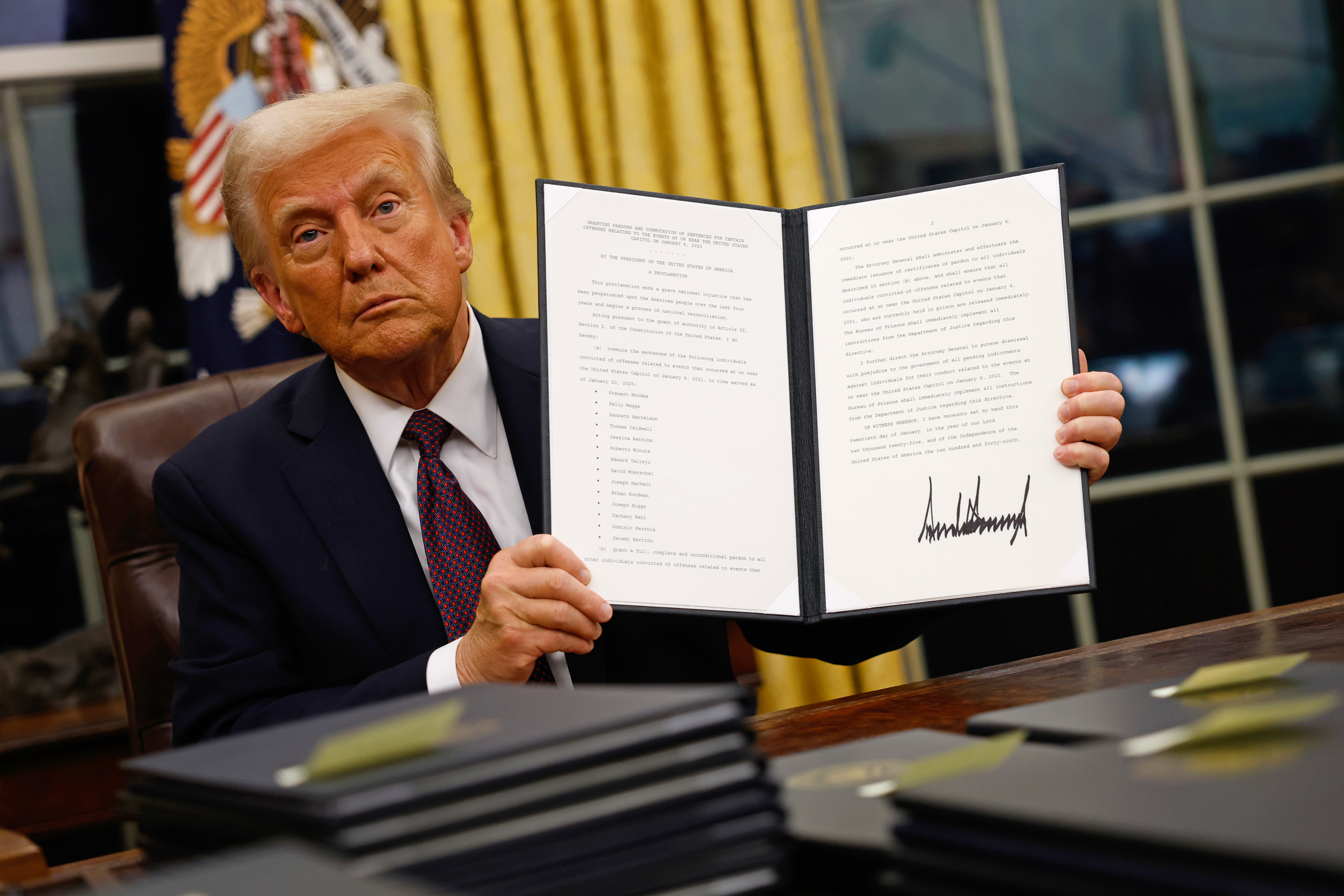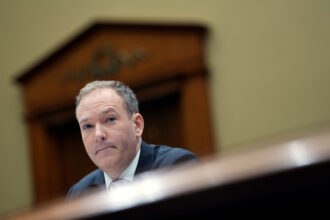The U.S. Fourth Circuit Court of Appeals in Richmond, Virginia, heard arguments Thursday on whether the Trump administration’s cancellation of billions of dollars in environmental and climate grants earlier this year violated the Constitution or was merely a contract dispute.
Kym Meyer, litigation director and senior attorney for the Southern Environmental Law Center, told the three-judge panel that in singling out these grantees for cancellation, the Trump administration violated the Constitution. She likened it to “eliminating this grant because you’re Catholic or Black.”
The administration also allegedly did not follow correct procedures when it summarily canceled the grants on a single day, the plaintiffs argued.
“This is not contractual,” Meyer said.
Attorneys for the Trump administration argued the case should be heard in the Court of Federal Claims, a specialized court that hears contract and monetary disputes with the U.S. government. Unlike the Fourth Circuit, the Federal Claims Court is shut down because of the congressional budget impasse. When it resumes, there will likely be a significant case backlog.
The Claims Court also has limited authority; it can only rule on what damages are owed, not on larger legal questions like whether the Trump administration acted unconstitutionally.
The SELC and the Public Rights Project are representing 13 nonprofits and six cities that received money under the Inflation Reduction Act and the Infrastructure Investment and Jobs Act, which were approved and funded by Congress.
Shortly after taking office, President Donald Trump issued several executive orders directing agencies to evaluate programs and funding to determine whether they aligned with the administration’s priorities. This included the elimination of diversity, equity and inclusion (DEI) initiatives.
As a result, many federal departments, including the U.S. Environmental Protection Agency, canceled hundreds of grants. Many funded environmental justice programs, which would have helped communities of color and other low-income neighborhoods disproportionately harmed by high levels of pollution or other environmental ills.
The plaintiffs sued the Trump administration in March, alleging its freeze of congressionally mandated programs and their respective funding was “unlawful and arbitrary.” They said the administration’s actions violated “multiple statutory provisions, as well as fundamental constitutional and administrative safeguards.”
This included the separation of powers because, the plaintiffs argued, the executive branch was meddling with congressional appropriations.
“The grantees spent years applying for grants, started the work and then the executive branch came in and said, ‘We’re canceling what Congress told us to do,’” Meyer told the court.
CleanAIRE NC, based in Charlotte, is among the plaintiffs. The nonprofit received a $500,000 Environmental Justice Problem Solving grant in June 2024 from the EPA to monitor the air in four underserved communities in northern Mecklenburg County.
The grant would have also allowed CleanAIRE NC to train community health workers to track air quality and to conduct a health impact assessment with several local health departments and North Carolina State University.

“These funds represent a promise we’ve made to north Mecklenburg County communities that have partnered with us, shared their stories and are relying on us for critical services and information about the air they breathe,” said CleanAIRE NC Executive Director Jeffrey Robbins in a prepared statement. “Even a temporary disruption to this work jeopardizes our ability to fulfill those commitments.”
U.S. District Court Judge Richard Gergel of South Carolina agreed with the plaintiffs. In May, he directed the government to immediately restore funding for 32 of 38 programs. The agencies were prohibited from “freezing, terminating or otherwise interfering with the funding” of the grants “without written authorization from this court.”
The Trump administration appealed to the Fourth Circuit for a stay. In June, in a 2-1 decision, it granted the government’s request and put a hold on the district court’s ruling.
At Thursday’s hearing, Appellate Judge Paul Niemeyer, an appointee of President George H.W. Bush, seemed skeptical of the plaintiffs’ argument. “It cannot be that every time an executive branch official exercises power beyond their authority, that they have also violated the Constitution,” he said.
Since the stay in June, the legal landscape has become more complicated. In a 5-4 emergency decision, the U.S. Supreme Court in August sided with the administration in NIH v. American Public Health Association, which raised similar issues.
The Supreme Court allowed the National Institutes of Health to cancel $800 million in grants for research on health equity, ruling that the dispute is under the purview not of federal district court, but of the Court of Federal Claims.
However, Justice Amy Coney Barrett broke from the other conservative justices on the issue of whether the government’s guidance that informed the cancellations could be challenged in traditional federal courts. As a result, a majority of the Supreme Court left a narrow window of opportunity for grantees to challenge the reasoning behind the Trump administration’s termination of grant programs.
Meyer, the SELC attorney, asked the appellate court judges to send the environmental justice grant case back to the district court. There, a judge could use the precedent of the NIH case to rule more broadly on the administration’s justification for cancelling entire programs, instead of on the issue of whether money is owed to individual grantees.
About This Story
Perhaps you noticed: This story, like all the news we publish, is free to read. That’s because Inside Climate News is a 501c3 nonprofit organization. We do not charge a subscription fee, lock our news behind a paywall, or clutter our website with ads. We make our news on climate and the environment freely available to you and anyone who wants it.
That’s not all. We also share our news for free with scores of other media organizations around the country. Many of them can’t afford to do environmental journalism of their own. We’ve built bureaus from coast to coast to report local stories, collaborate with local newsrooms and co-publish articles so that this vital work is shared as widely as possible.
Two of us launched ICN in 2007. Six years later we earned a Pulitzer Prize for National Reporting, and now we run the oldest and largest dedicated climate newsroom in the nation. We tell the story in all its complexity. We hold polluters accountable. We expose environmental injustice. We debunk misinformation. We scrutinize solutions and inspire action.
Donations from readers like you fund every aspect of what we do. If you don’t already, will you support our ongoing work, our reporting on the biggest crisis facing our planet, and help us reach even more readers in more places?
Please take a moment to make a tax-deductible donation. Every one of them makes a difference.
Thank you,













